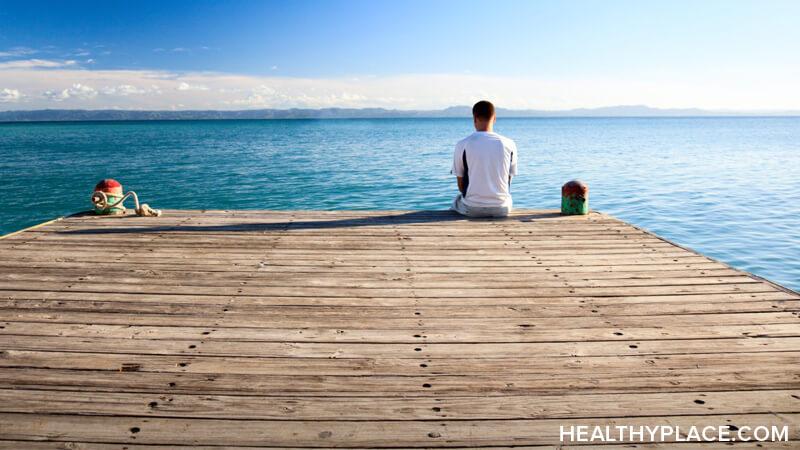Self-Care for the After-Effects of a Panic Attack
 The after-effects of a panic attack rarely include immediate relief. Living with severe anxiety and panic disorder means remaining constantly vigilant – of ordinary events, special events, people and our anxiety disorder itself. We worry and we watch, wanting to control what we can and, at least, predict the rest. That’s partly what makes a panic attack so difficult to experience. When the panic attack ends, the after-effects of a panic attack begin.
The after-effects of a panic attack rarely include immediate relief. Living with severe anxiety and panic disorder means remaining constantly vigilant – of ordinary events, special events, people and our anxiety disorder itself. We worry and we watch, wanting to control what we can and, at least, predict the rest. That’s partly what makes a panic attack so difficult to experience. When the panic attack ends, the after-effects of a panic attack begin.
During a panic attack, we undergo a number of frightening physical anxiety symptoms. The trouble isn’t over when the attack ends, however. For many of us, experiencing a panic attack sends us into anxiety overdrive – even after the panic attack is over.
We feel stressed, uneasy, and fearful of the next attack. We may experience feelings of depersonalization or dissociation, too. Prioritizing self-care immediately during the after-effects of a panic attack may help relieve these symptoms and get us back to ourselves as quickly as possible.
How to Manage the After-Effects of a Panic Attack
- Engage in your favorite self-care routine as soon as possible. Whether it’s taking a slow walk around a lake, relaxing in a warm bath, sipping a cup of hot tea, or playing with a pet, there are countless simple, practical self-care techniques that we can use to calm ourselves in during the after-effects of a panic attack. While circumstances often prevent us from practicing our favorite acts of self-care immediately after an attack, indulging in it as soon as possible can help reduce any lingering feelings and symptoms.
- Find an anywhere self-care technique you can practice in the after-effects of a panic attack. Panic attacks occur in inconvenient places where leaving isn't a real option: the doctor’s office, work, in the car, etc. Finding a self-care technique that works for you and can be used anywhere can help dispel those feelings of dissociation, depersonalization, and fear that often hang around in the after-effects of a panic attack. My favorite is to use a calming aromatherapy roller on my neck and temples. I love the way it smells, and the practice of putting it on relaxes me. It’s also convenient because I can carry the roller anywhere. Reading a favorite book, looking at a favorite picture, or calling someone special are other ideas for on-the-go self-care.
- Focus on the immediate present. Bringing our attention to the present is a powerful grounding technique that can calm our anxious minds and bring relief to the after-effects of a panic attack. If you’re in a chaotic or noisy place, try turning your attention to the most calming thing around. Maybe it’s the sound of a water fountain flowing in the room or the sight of a tree swaying in the wind outside. Use your senses to focus in on that one thing while breathing deeply. If everything around you is too loud or too intense to be relaxing, try giving yourself a mini hand massage, focusing on those feelings instead.
Practicing these three self-care tips during the after-effects of a panic attack can help restore our sense of self and release the extra stress and anxiety caused by the attack.

APA Reference
Hackley, S.
(2017, October 26). Self-Care for the After-Effects of a Panic Attack, HealthyPlace. Retrieved
on 2026, February 28 from https://www.healthyplace.com/blogs/treatinganxiety/2017/10/three-ways-to-practice-self-care-after-a-panic-attack
Author: Sarah Hackley
I had my first panic attack today. My mother has Parkinson’s disease and I have a para plegic Brother that help take care of, in addition my work environment is deadline sensitive. I’m looking for ways to cope in addition to taking the meds prescribed.